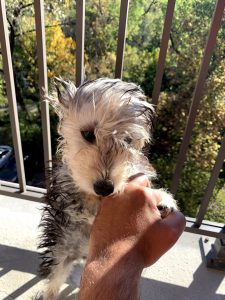Bichon Frise Behavior Problems & Solutions | Tips & Advice
Introduction
Bichon Frise is a popular breed of small dog known for its cheerful and affectionate personality. However, like any other dog breed, Bichon Frises can also develop behavior problems that can affect their quality of life and that of their owners. In this article, we will discuss the common Bichon Frise behavior problems and solutions to help pet owners address these issues.
Table of Contents:
Introduction
Understanding Bichon Frise Behavior
Common Bichon Frise Behavior Problems
a. Separation Anxiety
b. Excessive Barking
c. Chewing and Digging
d. Aggression
e. Fear and Anxiety
f. Housebreaking Issues
Solutions to Bichon Frise Behavior Problems
a. Separation Anxiety Solutions
b. Excessive Barking Solutions
c. Chewing and Digging Solutions
d. Aggression Solutions
e. Fear and Anxiety Solutions
f. Housebreaking Solutions
Understanding Bichon Frise Behavior
Before we delve into the behavior problems of Bichon Frises, it is essential to understand their typical behavior and temperament. Bichon Frises are known for their friendly and outgoing personality. They are intelligent, playful, and loyal pets that thrive on human companionship. However, Bichon Frises can also be stubborn and prone to separation anxiety.
Common Bichon Frise Behavior Problems
Bichon Frise behavior problems can be a result of various factors, including genetics, environment, and training. The following are some of the most common behavior problems in Bichon Frises:
a. Separation Anxiety
Separation anxiety is a common behavior problem in Bichon Frises. It is when a dog becomes anxious and stressed when separated from its owner or left alone. Signs of separation anxiety in Bichon Frises include barking, destructive behavior, and house soiling.
b. Excessive Barking
Bichon Frises are known to be vocal dogs, but excessive barking can be a problem. Excessive barking can be caused by boredom, anxiety, or territorial behavior.
c. Chewing and Digging
Bichon Frises are prone to destructive chewing and digging behavior. This behavior can be caused by boredom, anxiety, or a lack of exercise.
d. Aggression
Aggressive behavior in Bichon Frises can be a result of fear, anxiety, or territorial behavior. Signs of aggression include growling, biting, and snapping.
e. Fear and Anxiety
Bichon Frises are prone to fear and anxiety, which can be caused by various factors, including genetics, environmental factors, and lack of socialization.
f. Housebreaking Issues
Housebreaking issues are common in Bichon Frises. This behavior problem can be caused by a lack of proper training or medical issues.
Solutions to Bichon Frise Behavior Problems
Fortunately, there are solutions to the behavior problems of Bichon Frises. Here are some tips and solutions to help pet owners address these issues:
a. Separation Anxiety Solutions
- Gradual desensitization to being left alone
- Provide toys and treats to keep the dog occupied
- Crate training
- Anti-anxiety medication (as prescribed by a veterinarian)
b. Excessive Barking Solutions
- Identify and remove the triggers of barking
- Provide toys and treats to keep the dog occupied
- Training exercises to teach the dog when to bark
c. Chewing and Digging Solutions
- Provide appropriate toys and chews
- Provide regular exercise and mental stimulation
- Redirect the dog’s behavior to appropriate activities
d. Aggression Solutions
- Identify and remove the triggers of aggression
- Positive reinforcement training
- Behavioral modification training
- Anti-anxiety medication (as prescribed by a veterinarian)
e. Fear and Anxiety Solutions
- Gradual desensitization to anxiety triggers
- Positive reinforcement training
- Behavioral modification training
- Anti-anxiety medication (as prescribed by a veterinarian)
f. Housebreaking Solutions
- Consistent and frequent potty breaks
- Crate training
- Positive reinforcement training


